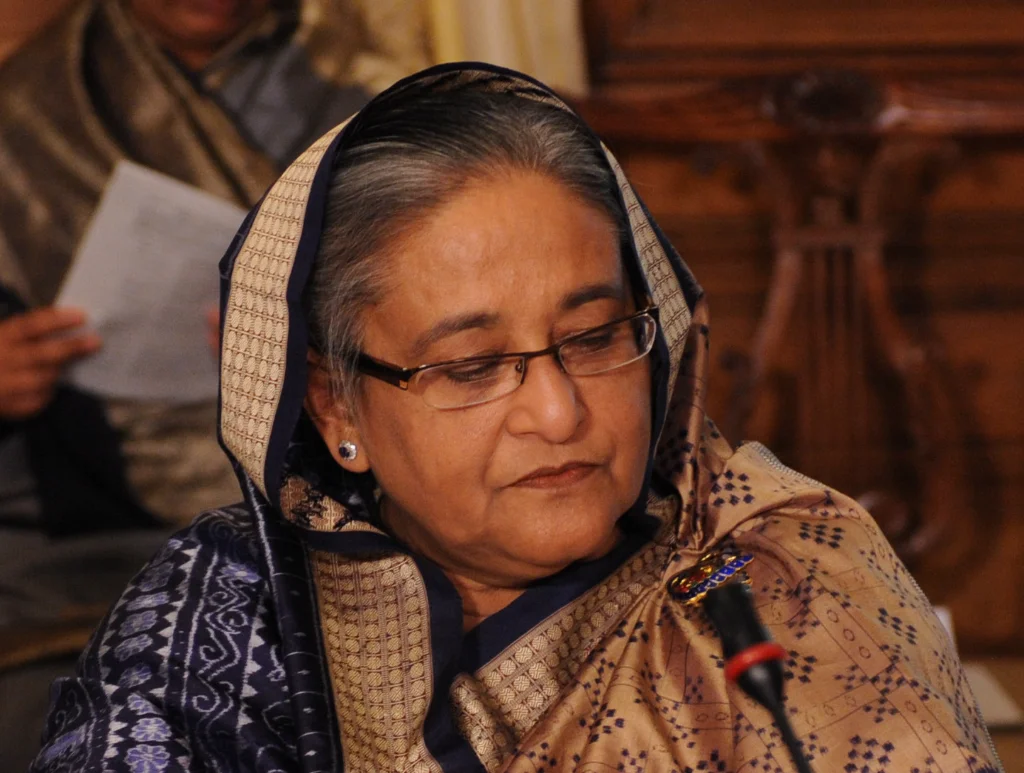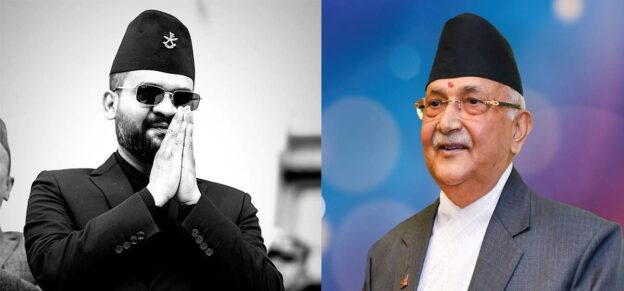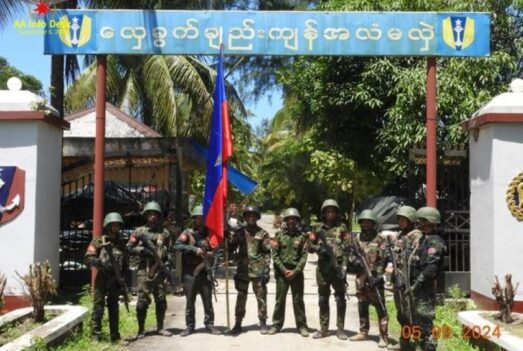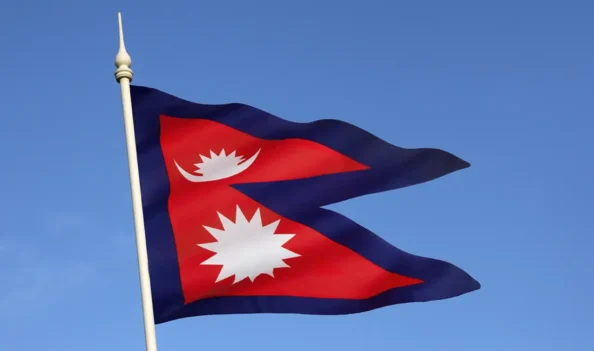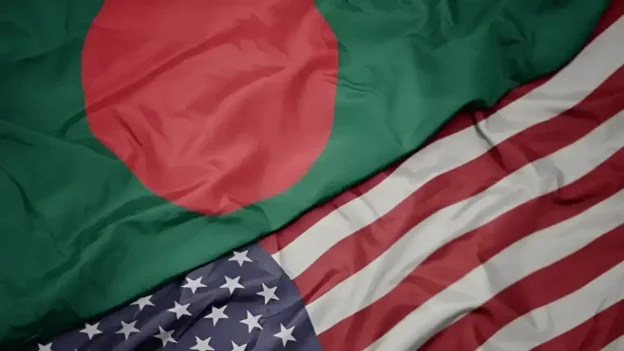Bangladesh stands today at a moment of profound reckoning—perhaps its most consequential since the 1971 Liberation War. The landmark verdict delivered by the International Crimes Tribunal (ICT) against former Prime Minister Sheikh Hasina and members of her last cabinet is not merely the culmination of a legal proceeding; it marks the opening of a political, moral, and institutional confrontation whose consequences will shape the country’s future trajectory.
On Monday, the tribunal sentenced Sheikh Hasina to death on two counts and to life imprisonment on another for crimes against humanity allegedly committed during the July 2024 uprising that ultimately ousted her from power. Former Home Minister Asaduzzaman Khan received a death sentence, while former Inspector General of Police Chowdhury Abdullah Al-Mamun—who testified for the state—was given a five-year sentence.
The charges, which the tribunal deemed proven, ranged from incitement through inflammatory rhetoric to the ordering of lethal force that resulted in shootings, arson attacks, and targeted killings.
Between vindication and vengeance
The verdict unleashed dramatic scenes across Dhaka: jubilant crowds in university zones, tears and relief among families of victims, angry denunciations from Awami League leaders, and perhaps the largest security deployment since the fall of Hasina’s government in August. Approximately 15,000 soldiers, police, and paramilitary forces were positioned across the capital. Celebration collided with anxiety, triumphalism existed alongside fear, and through these tensions emerged a profound national dilemma: had justice been delivered, or had history been weaponized?
Chief Prosecutor Mohammad Tajul Islam described the ruling as “a turning point for justice,” insisting that videos, intercepted calls, official logs, and witness testimonies would withstand scrutiny before any international tribunal. The Attorney General reinforced this narrative, proclaiming that “the martyrs have finally received justice,” presenting the verdict as a moral correction long overdue.
But the Awami League categorically rejected the ruling. Senior party leader Jahangir Kabir Nanak denounced it as “illegal” and “politically motivated,” arguing that the trial had been rushed and engineered as an act of vengeance. Even under restricted political conditions, the party called for a nationwide shutdown, heightening concerns of renewed confrontation.
The BNP, meanwhile, reacted with calculated restraint. Standing Committee member Salahuddin Ahmed argued that while the punishment did not fully correspond to the scale of the crimes, it nonetheless carried a vital lesson for Bangladesh’s political future.
“This verdict may not be proportionate to the crimes committed. But it is not only about justice for the past; it sets an example for the days ahead. It ensures that no one can establish a fascist state, and no one can become a dictator without accountability,” he said.
Trials, testimonies, and the battle over truth
Yet the verdict has been met with sharp criticism from rights groups. The New Delhi–based Rights and Risks Analysis Group (RRAG) condemned the convictions of Sheikh Hasina, Asaduzzaman Khan, and former IGP Abdullah Al-Mamun as a “political farce” and a “miscarriage of justice.” RRAG’s director, Suhas Chakma, argued that trying Hasina in absentia violated fundamental international standards of fair trial procedure.
He also faulted the interim government for failing to seek her extradition from India using established legal channels, noting that India itself had pursued high-profile extraditions—such as those of Abu Salem from Portugal and Mehul Choksi from Belgium—through strict judicial processes.
Chakma further questioned how Hasina could be charged when the actual perpetrators at the crime scenes were not identified in the chargesheet. He argued that Al-Mamun could not legally serve as an approver because he had not been present at the crime scenes. RRAG also challenged the admissibility of reports by the UN OHCHR, Human Rights Watch, and the BBC, noting that without witness testimony or cross-examination, such documents could not constitute valid evidence.
“Justice has not been served because the actual perpetrators remain unpunished,” Chakma said, adding that the verdict had failed both the accused and the victims.
At the centre of the tribunal’s judgment lies the July 2024 student-led uprising, which began as a protest against job quota policies but rapidly swelled into the largest mass movement Bangladesh had witnessed since 1990. Weeks of violent clashes, deaths, arson, and disorder culminated in the collapse of the government and the formation of a transitional administration.
The tribunal focused on three critical episodes: the shooting of student protester Abu Saeed in Rangpur, the killing of six people in Dhaka’s Chankharpul area, and the burning to death of six individuals in Ashulia. Judges placed significant weight on Sheikh Hasina’s televised remark branding the protesters as “children of Razakars,” interpreting it as incitement that contributed to the escalation of lethal force. Hours of video footage and witness accounts were used to construct what the tribunal argued was a clear chain of command leading from political rhetoric to violence on the streets.
The Awami League, however, maintains that the uprising was infiltrated by hostile foreign interests and domestic conspirators—a claim it has repeated consistently over the past year. For the party, the verdict is therefore not a judicial exercise but a political attack.
Public sentiment remains deeply divided. In the TSC area of Dhaka University, crowds erupted in applause when the verdict was announced, and survivors and victims’ families expressed satisfaction. Many young people, who had mobilised during the uprising, view the trial as an unprecedented moment of accountability.
Yet beyond these visible celebrations lies a quieter, more uneasy reality. A significant portion of the population—supporters of the former government, civil servants tied to the previous administration, and individuals fearful of political reprisals—has chosen to remain silent. Bangladesh is not united in either grief or celebration; it is suspended between the two, uncertain of what comes next.
Awami shadows and shifting geopolitics
The geopolitical implications are equally weighty. The government’s decision to formally request the extradition of Sheikh Hasina and Asaduzzaman Khan from India places New Delhi in a delicate position.
The tribunal notes that both are currently in India, a country that had been Hasina’s closest regional ally for more than a decade. India invested heavily in security cooperation, connectivity infrastructure, and intelligence-sharing during her tenure. Extraditing her would signal a dramatic shift in regional politics, while refusing could strain relations with the new administration in Dhaka. At a moment when South Asia is already navigating fraught borders, shifting alliances, and rising strategic competition, Bangladesh’s extradition request introduces a new layer of tension.
To fully grasp the current turbulence, one must consider the long shadow of the Awami League itself. The party’s ideological roots reach back to the 1952 Language Movement, where the fight for Bengali linguistic rights embedded it in the emotional fabric of East Pakistan. Its political identity sharpened in 1966 with Sheikh Mujibur Rahman’s Six-Point Movement, which articulated the region’s aspirations for economic and political autonomy. The elections of 1970, the ensuing repression, and the 1971 Liberation War further cemented the party’s centrality to Bangladesh’s national narrative.
The early post-independence years from 1972 to 1975 saw attempts to build a secular democratic republic, but internal fissures, economic crises, and political turmoil culminated in the establishment of the BAKSAL one-party system and the assassination of Sheikh Mujib. After years of military rule, the Awami League returned to power in 1996, overseeing pragmatic governance and landmark agreements such as the Ganges Water Treaty and the Chittagong Hill Tracts Peace Accord.
Its most transformative era began in 2009, when the party embarked on a continuous 15-year rule marked by rapid economic growth, massive infrastructure expansion, digital transformation, and the long-demanded trials of 1971 war criminals. Yet this period also drew intense criticism: democratic backsliding, politicisation of institutions, suppression of dissent, controversial elections in 2014 and 2018, and growing reliance on security forces. By 2024, political trust had eroded severely, setting the stage for the student uprising.
In this sense, the 2025 verdict is not merely about crimes committed during a moment of political crisis; it is about the long political legacy of a party that has dominated the state for decades. The tribunal’s decision thus becomes part of a much larger story—a story about power, accountability, memory, and the cycle of political confrontation that has defined Bangladesh since its birth.
The verdict is historic, but its meaning is far from settled. Whether it becomes a moment of accountability or another turn in the cycle of political retribution depends on what follows: whether institutions strengthen or fracture, whether political forces pursue reconciliation or revenge, and whether Bangladesh can move beyond the shadows of its past.
What is clear is that the country enters a new decade carrying the weight of its history, the hopes of its youth, and a set of unresolved questions that will determine the shape of its future. Bangladesh now stands on the edge of a future yet to be written.

